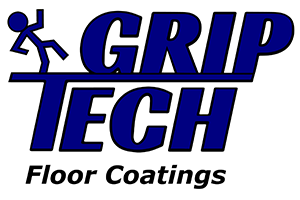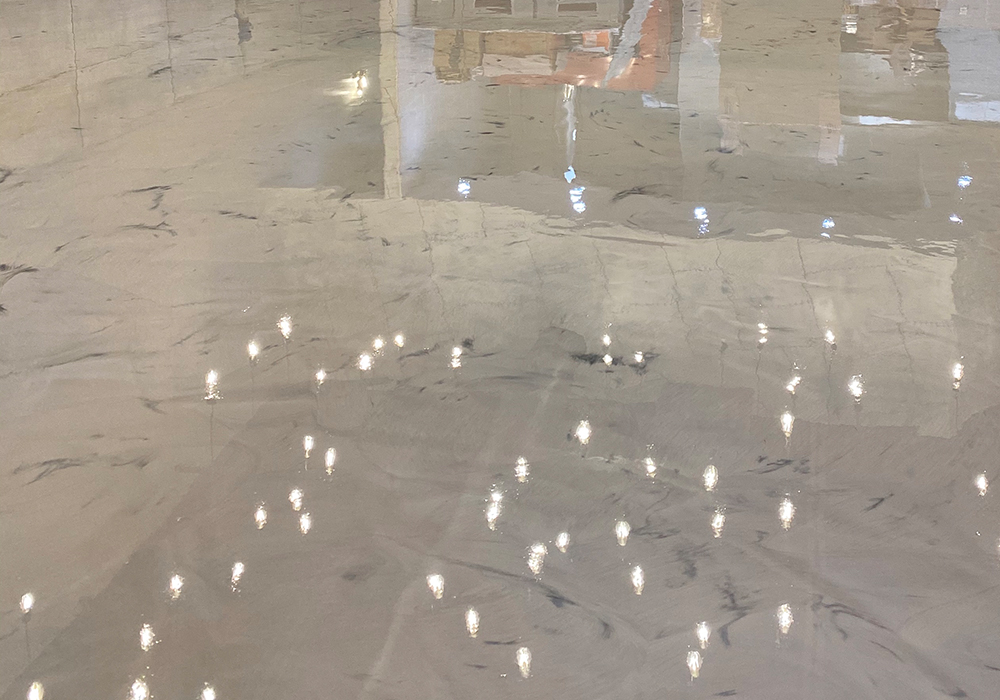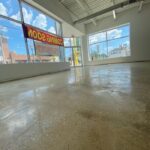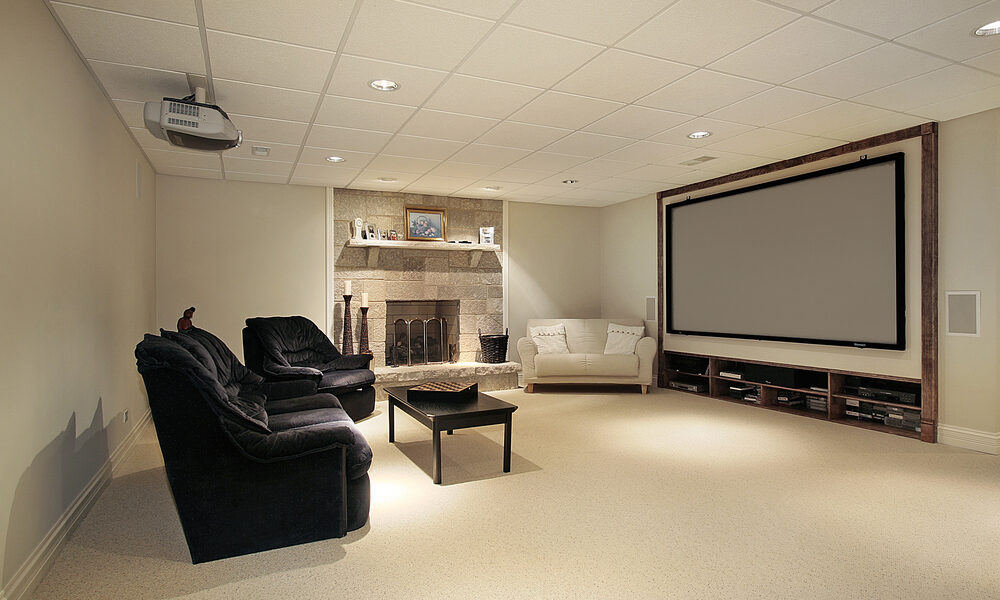
Why an Epoxy Basement Floor Is the Best Option for Your Home
Are you considering renovating your basement? One of the most significant decisions you’ll make is choosing the right flooring option. In this blog post, we’ll delve into why an epoxy basement floor is an excellent choice for homes in the Freehold, Monmouth County, New Jersey, and New York City areas.
What is an Epoxy Basement Floor?
Epoxy basement flooring involves applying a layer of epoxy resin over your existing basement floor. This creates a durable, easy-to-clean surface that can dramatically improve the look and functionality of your basement. Epoxy flooring systems are incredibly versatile, offering a range of colors and finishes to suit your specific aesthetic preferences.
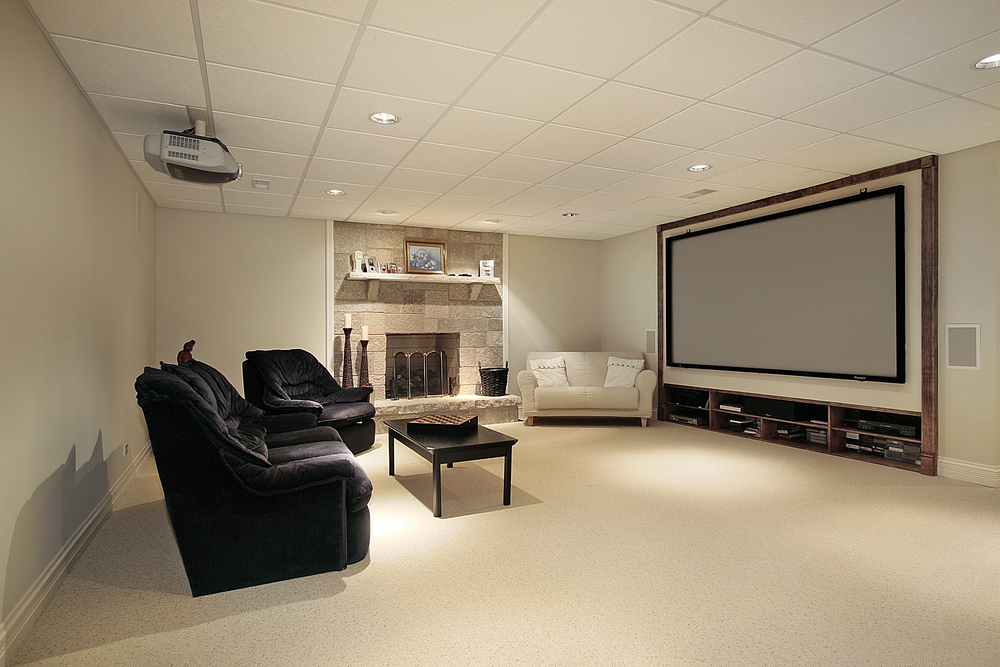
5 Benefits of an Epoxy Basement Floor
1) Durability
One of the top reasons homeowners in Manhattan, Brooklyn, and throughout New Jersey choose epoxy is its exceptional durability. Unlike traditional concrete flooring, an epoxy basement floor is resistant to chips, cracks, and stains, making it a long-lasting solution for high-traffic areas.
2) Maintenance
Epoxy floors are also known for being low maintenance. Spills and messes can be cleaned up easily, making it a practical choice for family homes. This is especially important in high-humidity areas such as basements, where mold and mildew can often be a problem.
3) Aesthetics
When it comes to aesthetics, epoxy floors are hard to beat. With a range of colors and finishes available, you can customize your basement floor to match your home’s style. Whether you prefer a shiny high-gloss finish or a more subdued matte finish, epoxy can deliver.
4) Safety
Safety is a crucial concern for any homeowner. Epoxy floors are slip-resistant, making them a safe option for both young children and older adults. Plus, its reflective surface can help to increase the light in your basement, making it a brighter, safer space.
5) Cost-Effective
Finally, epoxy flooring is a cost-effective choice. While the initial cost may be higher than some other flooring options, epoxy durability and low maintenance requirements make it a more affordable choice in the long run.
Epoxy Basement Floor vs Other Flooring
Epoxy basement flooring often surpasses other flooring options in terms of durability, maintenance, and aesthetic appeal.
Consider traditional concrete floors, for example. While concrete is a sturdy material, it can become cracked and stained over time, and these imperfections can be hard to remedy.
On the other hand, an epoxy coating transforms cracked and stained concrete into a usable, clean space. It is resistant to extreme temperatures, foot and machine traffic, and chemicals. This makes epoxy an ideal choice for areas like basements that often experience heavy use.
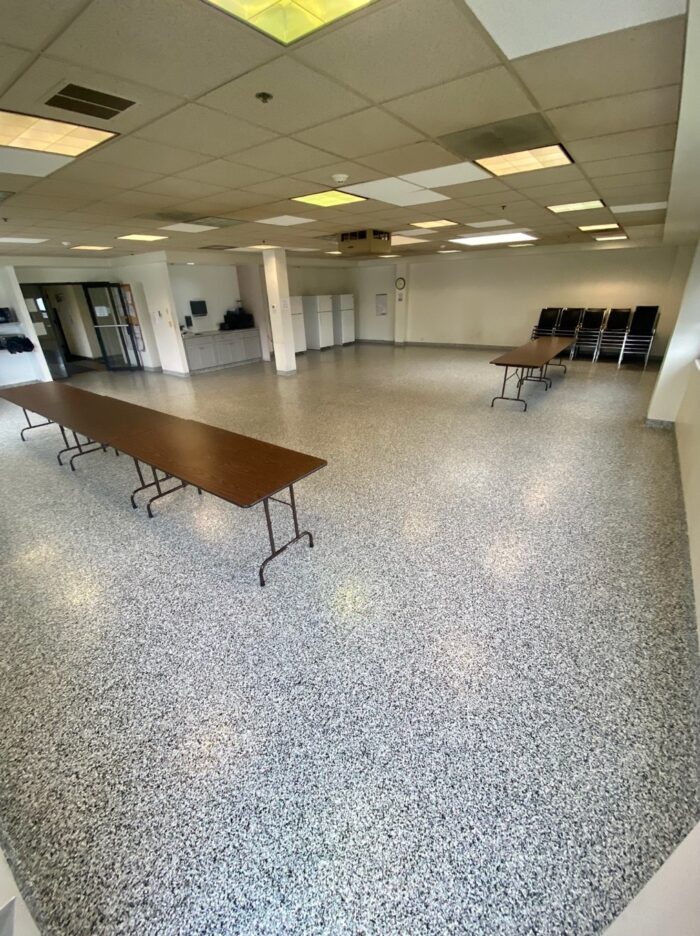
Wooden flooring, another common choice, can be susceptible to water damage, especially in a basement where moisture levels can be higher. In contrast, epoxy flooring is impermeable and water-resistant. This means you won’t have to worry about dampness seeping into your floor and causing damage.
Moreover, while carpeting might provide a cozy and warm feeling, it is not a practical choice for basements, given the potential for moisture and mildew.
Epoxy floors, on the other hand, do not harbor mold or dust mites and are easy to clean. Plus, they offer a level of design flexibility that is hard to achieve with carpeting. You can choose from a variety of finishes and colors to match your décor and style.
How to Choose the Right Epoxy Floor for Your Basement
Choosing the right epoxy floor for your basement involves several factors.
Purpose: Consider the purpose of your basement. Will it be a laundry room, a play area for kids, a workshop, or a stylish entertainment space?
Different uses will necessitate different types of flooring. For instance, if you’re turning your basement into a workshop, you’ll want an epoxy floor that can withstand heavy foot and machine traffic.
Aesthetic Preference: Epoxy flooring comes in a variety of colors and finishes, so you can choose one that suits your taste and complements the overall design of your basement.
Whether you prefer a solid color, a chip finish for a granite-like effect, or a metallic finish for a dazzling, unique look, there’s an epoxy flooring solution for you.
Basement Size: The size of your basement is another important factor. Large basements might benefit from lighter shades of epoxy that can help make the space feel bigger and more open. For smaller basements, consider darker colors that can help create a cozy, intimate atmosphere.
Safety: Finally, safety should be a top priority when choosing an epoxy floor for your basement. Look for options that improve traction and reduce the risk of slips and falls. Grip Tech offers non-slip concrete and epoxy concrete coatings that increase traction on concrete, wood, tile, brick, and metal, which can provide the highest safety standard for your basement floor.
Check out our epoxy flooring and decorative concrete coatings pages to find more information to help guide your decision.
The Installation Process of an Epoxy Basement Floor
Installing an epoxy basement floor involves a multi-step process that necessitates the expertise of seasoned professionals. At Grip Tech Flooring Solutions, we have honed our methods over years of serving homeowners in Monmouth County, New Jersey, and New York City areas. Here, we offer a glimpse into the careful and meticulous process we undertake to ensure a high-quality epoxy floor installation.
Initial Assessment
The process begins with a thorough examination of your existing floor. We assess its condition, looking for any cracks, unevenness, or moisture issues that need addressing before the epoxy coating can be applied. This step is critical as the presence of these issues can hinder the successful application and longevity of the epoxy coating.
Floor Preparation
Once the initial assessment is complete, we begin preparing the floor for the epoxy application. This involves cleaning the floor thoroughly to remove any dirt, oil, or grease that may be present. If the floor has any cracks or uneven areas, these are repaired and smoothed out. The floor is then roughened using a grinder or shot blaster to enhance the epoxy’s adherence. This meticulous preparation process ensures a seamless and smooth finish, improving the overall aesthetic and durability of the final product.
Epoxy Application
After the floor has been prepared, the epoxy mixture is prepared according to the manufacturer’s instructions. It’s crucial to get the mix right as it affects the performance and appearance of the floor. Once ready, the epoxy is applied evenly across the floor surface using specialized tools. Depending on the type of finish desired, additional materials like chips or quartz may be incorporated into the epoxy for a decorative touch.
Curing
After the epoxy has been applied, it needs time to cure. During this period, the epoxy hardens and bonds with the concrete to form a tough, durable coating. It’s important to note that the curing time can vary depending on the type of epoxy used and the environmental conditions. We ensure this process is not rushed, as a properly cured floor will provide a long-lasting, high-performance surface.
Our commitment to these thorough processes at Grip Tech Flooring Solutions ensures that homeowners in Monmouth County, New Jersey, and New York City areas receive a top-quality epoxy basement floor that meets and exceeds their expectations.
When it comes to enhancing the safety, functionality, and aesthetics of your basement, choosing an epoxy floor installation by Grip Tech Flooring Solutions is a decision you won’t regret.
Frequently Asked Questions about Basement Epoxy Floors
| Can mold grow under epoxy floor? | No, epoxy floors are resistant to mold and mildew. They create a non-porous, seamless surface where these organisms cannot grow. |
| Can I epoxy my basement myself? | While you can technically epoxy your basement yourself, it’s a complex process that requires specialized knowledge and equipment. It’s often best to hire professionals like Grip Tech Flooring Solutions. |
| Is an epoxy basement floor expensive? | The cost of an epoxy basement floor can vary depending on a number of factors, including the size of your basement and the specific type of epoxy you choose. However, considering its durability and low maintenance, epoxy flooring is a cost-effective solution in the long run. |
| Is epoxy flooring good for basement floors? | Yes, epoxy flooring is an excellent choice for basements. It’s durable, resistant to moisture, and available in a variety of styles and finishes to match your home’s aesthetic. |
As you can see, an epoxy basement floor offers a range of benefits that make it an excellent choice for any home. Whether you’re in Manhattan, Brooklyn, or New Jersey, we’re ready to help transform your basement into a beautiful, functional space. Contact us today for a free estimate on your floor project.

